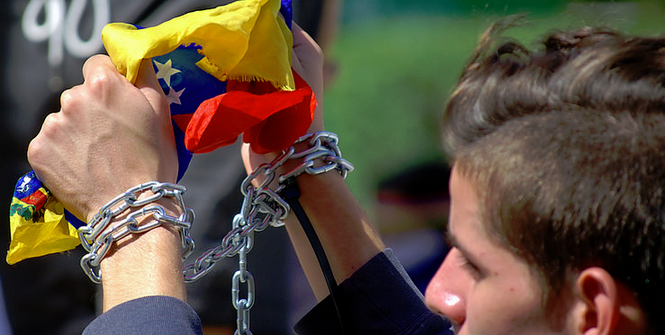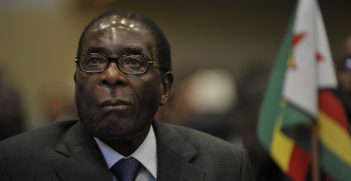China’s Billions Will Not Fix Venezuela’s Systemic Economic and Political Quagmire

On 2 September 2015, President Nicolás Maduro announced that Venezuela and China had agreed on a “special” $5 billion loan to assist the development of oil production in Venezuela. This deal is the latest in a series of oil-for-loans agreements that were originally established by former President Hugo Chávez in 2007. Since the first oil-for-loan agreement with China, Venezuela has been the recipient of more than $50 billion in financial loans with the majority of these funds being provided by the China Development Bank and the Bank of China.
President Nicolás Maduro has gone to great lengths to emphasise the importance of these exchanges between China and Venezuela in an attempt to instill greater confidence in Venezuela’s flailing economy. For example, President Maduro stressed that Xi Jinping’s visit to Venezuela in July 2014 ‘gave a great momentum to our cooperation with new projects in infrastructure, technology and industrial areas as well as a financing scheme that benefits both nations’, although the details of these loan agreements remain hidden from public scrutiny. Despite the fact that this recent tranche of loans is aimed at boosting oil production, the frequent injection of Chinese money into Venezuela’s economy only treats the symptoms and not the root causes of Venezuela’s problems. Venezuela’s problems are systemic and therefore require a fundamental shift in governance and policy practices in order to stabilise the economic and political situation.
Since assuming the presidency in 2013, Nicolás Maduro has presided over a particularly turbulent time in Venezuela’s political and economic history. At the heart of Venezuela’s current woes is its shrinking economy – around 4 percent in 2014. While oil accounts for 96 percent of total Venezuelan exports and approximately 50 percent of Venezuela’s total GDP, the past decade has seen Venezuela’s oil production at the state-owned PDVSA (Petróleos de Venezuela S.A.) contract by 25 percent. This contraction, coupled with decreasing prices of oil on the international market, has left Venezuela is an extremely tenuous economic position and increasingly reliant on international lenders to make up the shortfall in government revenue.
The Central Bank of Venezuela last reported the rate of inflation at 68.5 percent in February 2015; however economists have speculated that the real rate of inflation has already reached triple digits. A consistent decline in real wages has meant that it is becoming increasingly difficult for citizens to cover basic needs on stagnant salaries in the face of rampant inflation. Economists have predicted that if economic policy does not change Venezuela will be on the verge of being in a state of hyperinflation. Adding further pressure to this precarious situation are the nation-wide shortages of basic goods such as sugar, flour, pasta, rice, cooking oil, feminine hygiene products, toilet paper and other essential toiletries. In cities across the country, lining up for several hours in order to buy basic products has become part of everyday life.
These issues came to international attention in February 2014 when a series of anti-government protests sprang up across the country in response to soaring inflation rates, food and goods shortages, high rates of violence and homicides as well as a general dissatisfaction and distrust of the Maduro government. The protests quickly turned into small civil insurrections in parts of the country which resulted in 43 people killed from both pro-government and anti-government groups. Following the protests, the Maduro government began to target key members of the opposition for their involvement and encouragement of civil unrest. Several senior opposition figures such as Leopoldo López from the Popular Will Party and former Caracas mayor Antonio Ledezma have been arrested and charged with inciting violence during the 2014 protests and for participating in an attempted coup d’état again the Venezuelan Government. On 11 September 2015, Leopoldo López was sentenced to 13 years and nine months in prison, despite serious concerns raised in relation to the impartiality of the presiding judge and the ability for Lopez to receive a fair trial. The sentencing of Lopez is the latest example of a concerning trend whereby the Venezuelan Government has actively sought to target opposition figures and present their actions as being nefariously motivated and the source of the chaos and instability in Venezuela.
In an attempt to shore up domestic support, President Maduro continues to promote a divisive discourse in Venezuelan politics that pits Chavistas (government supporters) against anti-Chavistas (members of the opposition). These tactics are reminiscent of those used by former President Chávez in which government policies are determined along ideological lines and utilise unhelpful simplistic dichotomies that place supporters of the government on the side of “good” and supporters of the opposition on the side of “evil.”
Venezuela is in need of a revolution. However, the type of revolution required is far less glorious and romantic than the Bolivarian revolution that swept the country in the late 1990s under the leadership of President Hugo Chávez. Venezuela needs to invest in greater governance mechanisms to ensure sound decision and policy-making processes that are capable of addressing the current economic and political crises. It needs to move away from policy formulation that is ultimately orientated by ideology and hagiographic references to Hugo Chávez and his vision for Venezuela, to a pragmatic framework that supports the development of Venezuela’s aging oil industry, encourages foreign direct investment and one that provides a reasonable space for private enterprises to operate and thrive in the economy. The “special” $5 billion loan from China may provide Venezuela some relief in the interim and a small opportunity to address some of these issues, but these types of cash injections are short-term solutions to long-term entrenched social and economic problems, and therefore will only ever treat the symptoms of Venezuela’s ailments and not the cause itself.
Dr Anthea McCarthy-Jones is an Assistant Professor in Government and Policy at the University of Canberra. This article can be republished with attribution under a Creative Commons Licence.





